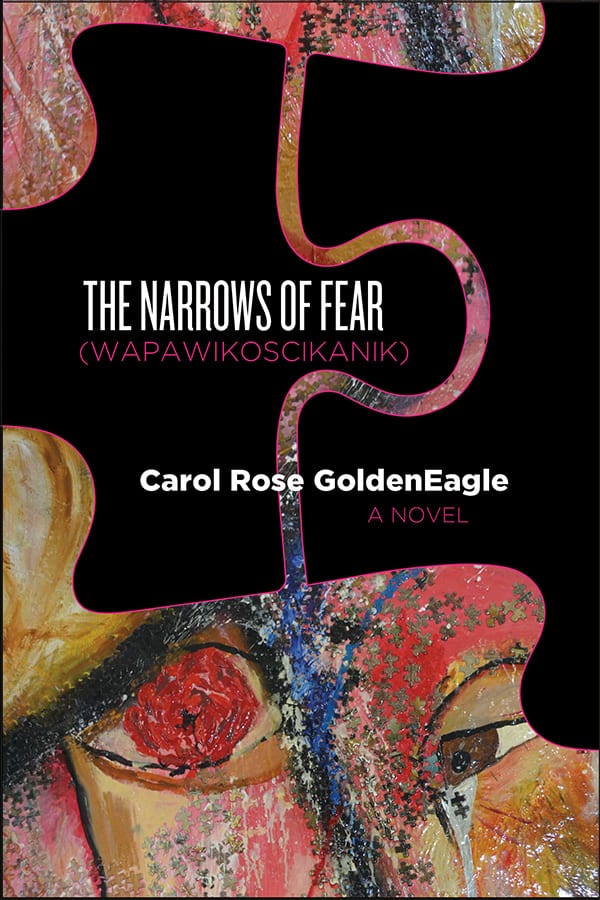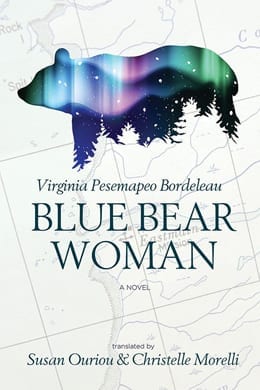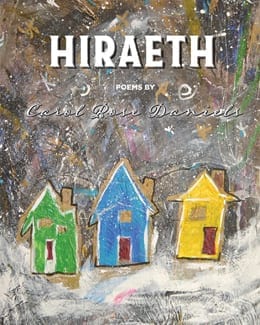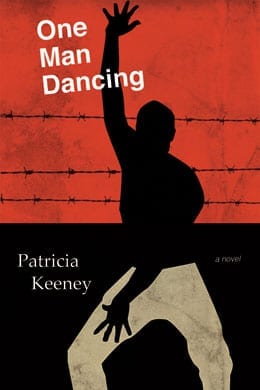Winner, 2021 Rasmussen & Co. Indigenous Peoples’ Writing Award (Saskatchewan Book Awards)
The Narrows of Fear (Wapawikoscikanik) weaves the stories of a group of women committed to helping one another. Despite abuse experienced by some, both in their own community and in residential schools, these women learn to celebrate their culture, its stories, its dancing, its drums, and its elders. Principal of these elders is Nina, the advisor at the women’s shelter. With the help of Sandy and Charlene, Nina uses Indigenous practices to heal the traumatized Mary Ann. This is a powerful novel—sometimes brutally violent, sometimes healing, sometimes mythical, and always deeply respectful of the Indigenous culture at its heart.
“Strong women united in friendship and solidarity are an unstoppable force. These characters will stay with you. This story is haunting in all the good ways.”
—Katherena Vermette, author of The Break
“Even though fiction, Narrows of Fear (Wapawikoscikanik) is an authentic telling of Truth as its characters wrestle with the trauma of inter-generational violence and abuse rooted in the colonization of Indigenous peoples. It is also an honouring of language, of culture, of dreams, and of Spirit. A story of courage, of hope and healing, it is a welcome addition to the widening and strengthening of Circle for all. Hiy Hiy Osawa Mikisew Iskwew.”
—Lorrie Potvin, author of First Gear: A Motorcycle Memoir, and the forthcoming, Horses in the Sand
“Carol Rose GoldenEagle’s novel, The Narrows of Fear (Wapawikoscikanik) is a powerful and compelling novel about Aboriginal women reclaiming and celebrating our Indigenous culture, traditions, and ways of knowing. Collective knowledge can heal and strengthen humanity when women are given space to do so. A must read for all women!”
—Beverly Little Thunder, author of One Bead at a Time: A Memoir
Carol Rose GoldenEagle is Cree and Dene with roots in Sandy Bay, northern Saskatchewan. She is an award-winning published novelist, poet, playwright, visual artist, and musician. Her works has previously been published using the surname, Daniels. She now chooses to use her traditional name. She is the author of the award-winning novel Bearskin Diary (2015) and the recently published Bone Black (2019). Her debut poetry volume, Hiraeth, was published in 2018 and was shortlisted for the 2019 Saskatchewan Book Awards. As a visual artist, her work has been exhibited in art galleries across Saskatchewan and Northern Canada. As a musician, a CD of women’s drum songs, in which Carol is featured, was recently nominated for a Prairie Music Award. Before pursuing her art on a full-time basis, Carol worked as a journalist for more than 30 years in television and radio at APTN, CTV, and CBC. She lives in Regina Beach, Saskatchewan.
Preparing for a Shift
It has been more than a week and since arriving at the shelter, Mary Ann’s middle name has been numbness. She refuses to eat. Shelter staff have been bringing her crackers with thick slices of marble cheddar and fresh fruit. This morning, Charlene even offers wild blueberries from home, another gift which made its way south when Maynard arrived for his visit. But even the familiarity of sweet berries doesn’t prompt Mary Ann to eat. Instead, it is a sad song from her wounded heart that fills the room as she turns to the opposite side of the bed, closes her eyes, and remains silent when Charlene offers the food. There are no tears from Mary Ann anymore, only heavy sighs as she continues to weep silently on the inside.
Charlene covers her with a light sheet, leaving the multigrain crackers and a glass of water on the bedside table but taking the cheese and fruit from the tray. Charlene knows her pain. Different but similar. Pain is pain and needs to be felt, honoured, and acknowledged. She knows because she has lived through similar deep pain. Charlene takes the fresh food with her after Mary Ann refuses to eat because she doesn’t see any sense in letting the fresh items spoil. It is a sin to waste food. Charlene can still hear her Kohkum saying that. As she quietly closes the door, she notices Nina sitting on a soft, light purple wingback chair in the large upstairs corridor. The chair is placed beside a large window that lets in the light and a view of a leafy elm. The old tree blocks the view of traffic and the busy street below. Its trunk has been banded in an effort to prevent tent caterpillars from further infestation and causing even more destruction. Fitting, Nina thinks, as she ponders the healing road ahead for the young woman who refuses to eat and to get out of bed.
”I am starting to worry,” Charlene whispers.
“Don’t,” Nina replies. “She is grieving and acknowledging her pain. I know too many people who never honour their pain. They carry on like nothing has happened and pretend that everything is okay and it eventually bites them in the ass. They might develop stomach problems or heart palpitations. Or they turn to addictions. Their pain turns into disease because they refuse to acknowledge the darkness within them.” Charlene steps in closer to hear and as she does Nina takes the small bowl of blueberries from the tray. “Haven’t had these in a while.” She smiles and she slowly pops each small berry into her mouth, remembering her own happy times picking berries for her family. Nina continues to speak. “It’s only after Mary Ann feels her pain that she’ll be able to let it go and move on. I’ve been praying for her. She’s going to be all right. It’s why she ended up here. We are going to help her.”
The two women slowly make their way down the grand wooden staircase. When they reach the bottom, Nina suggests that Mary Ann join them tonight. “It’s a Full Moon Ceremony. You have any more berries at home?”
Charlene tells Nina that she’s never been to such a ceremony, “What’ll we do?”
“We pray and we sing,” says Nina. The old woman explains that the prayers offered are mostly prayers of gratitude. The songs are songs of joy. She asks Charlene to call Sandy and invite her as well. “I need the two of you to help me get ready. You need to collect wood because we’ll offer food to the fire to feed the spirits. It’s why I asked about the berries. We will sing to our Grandmother Moon and ask for guidance. But mostly, it’s a time to rejoice in being a woman. That girl upstairs needs to be with us.”
Nina describes a place not far from the city. It’s called Kinookimaw alongside the Town of Regina Beach. There is a bluff that overlooks Last Mountain Lake, or Long Lake, which is what the Ancestors called the area. Kinookimaw. It is historically significant land and a place where Aboriginal people used to hunt, fish, camp, and pick berries and medicines. Fields of wild sage still grow in abundance and rat root and sweetgrass can be found by the willows near the ponds that dot the landscape. Nina says she’s been visiting the area all her life, “We used to dance there. Now too many people have built houses. I still go picking there though.” She pauses and glances with thoughtful expression towards the front door. “Some say the Big Ones still live out there and show themselves to those in need of answers. Or those in need of a lesson.”
Charlene interrupts, not quite following. “Who shows themselves?”
“The sasquatch. Or whatever you choose to call him. Spirit beings who have always protected the land and those who pray for balance. Some call him Bigfoot. Some call him Bush Man. He’s a shape-shifter.”
Nina laughs and talks about a documentary she watched on television the previous night. A group of people had assembled and described their adventures camping in remote areas and carrying special equipment. “They were trying to capture a Big One or at least take a photo. But it’ll never happen. You can’t capture a spirit. That’s what the Big Ones are.”
Charlene’s squirms upon hearing this story. A crease develops between her brows and the corners of her mouth turn slightly downward. Nina notices her fear and pauses to reassure her. “And, yes, they are likely to be watching us tonight when we are out on the land but no need to be concerned. They’ve been watching you for years, my girl, in one form or another. They are always around. I’ve heard some people describe them as what they call a giant.” She stops for a moment. “When I was a girl, Kohkum used to talk about this Spirit being having long legs and a long face, like a horse. She told me she had seen him. And, I’ve heard stories about the elusive one having horns like an elk or moose. Like I said, a shape-shifter. No one can ever really explain these sightings for sure. You just know when the Big One is present. But no need for you to ever worry. I have always heard the Elders say that so long as your heart is pure, and you do right, their role is to protect.”
“You ever see one?” Charlene asks, aching to know.
“I haven’t actually seen one but I know they are there.” Nina winks.
“How?”
Nina explains that there are ways of knowing without seeing. She talks about when she is picking berries on the land in Kinookimaw and she feels like she’s being watched, but when she turns to look, there is no one there. She talks about saying prayers in the wind and making an offering of tobacco to Mother Earth, and then seeing movement in her peripheral vision. But when she looks more closely, there is no one there. She talks about when she goes for walks along the quiet Kinookimaw pathway by the lake and she hears a twig snap behind her, she turns to look, but there is no one there. She talks about familiar smells when sitting out near the lake: the fragrance of wild flowers in bloom. The scent of new growth and sap on the trees. A whiff of wet freedom and wonder as algae stretches up along the shoreline. And then something she cannot place? Like a pheromone, recognized only by the most primal of senses. She surveys the area trying to identify the source, but when she looks, there is no one there.









Inanna Admin –
The Narrows of Fear (Wapawikoscikanik) by Carol Rose GoldenEagle
reviewed by The Minerva Reader – December 2020
https://theminervareader.com/
I couldn’t tear myself away from this book. With the unflinching courage and vivid, beautiful prose, Carol Rose GoldenEagle lays bare the hurts and suffering of the past but equally maps the path of healing and wisdom. This is a fine example of the power of literature to educate and change the world. While the past cannot be undone, the future can be changed by works such as this. All the characters in the book moved me with this writer’s fine skills that make the reader truly feel part of the journey.